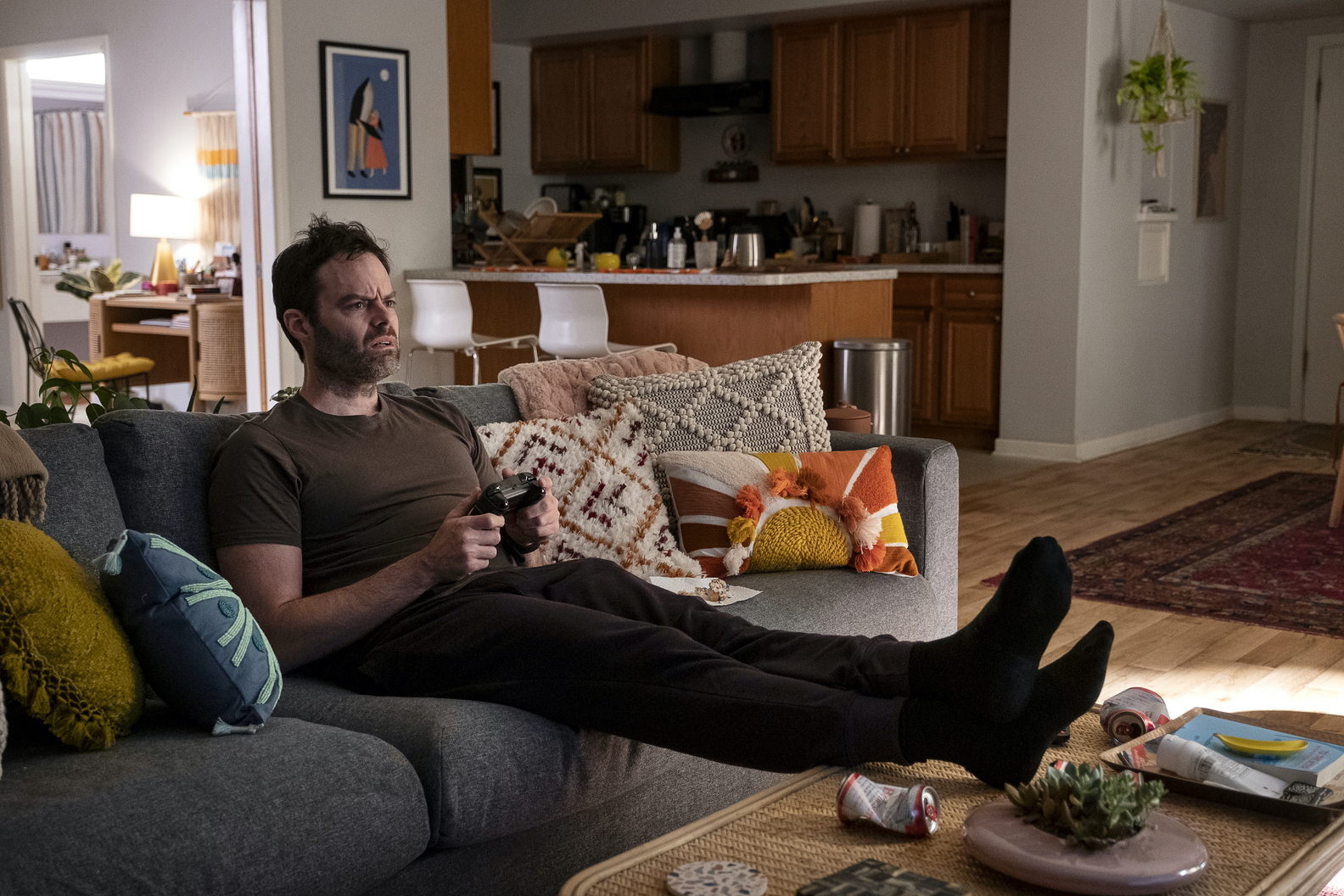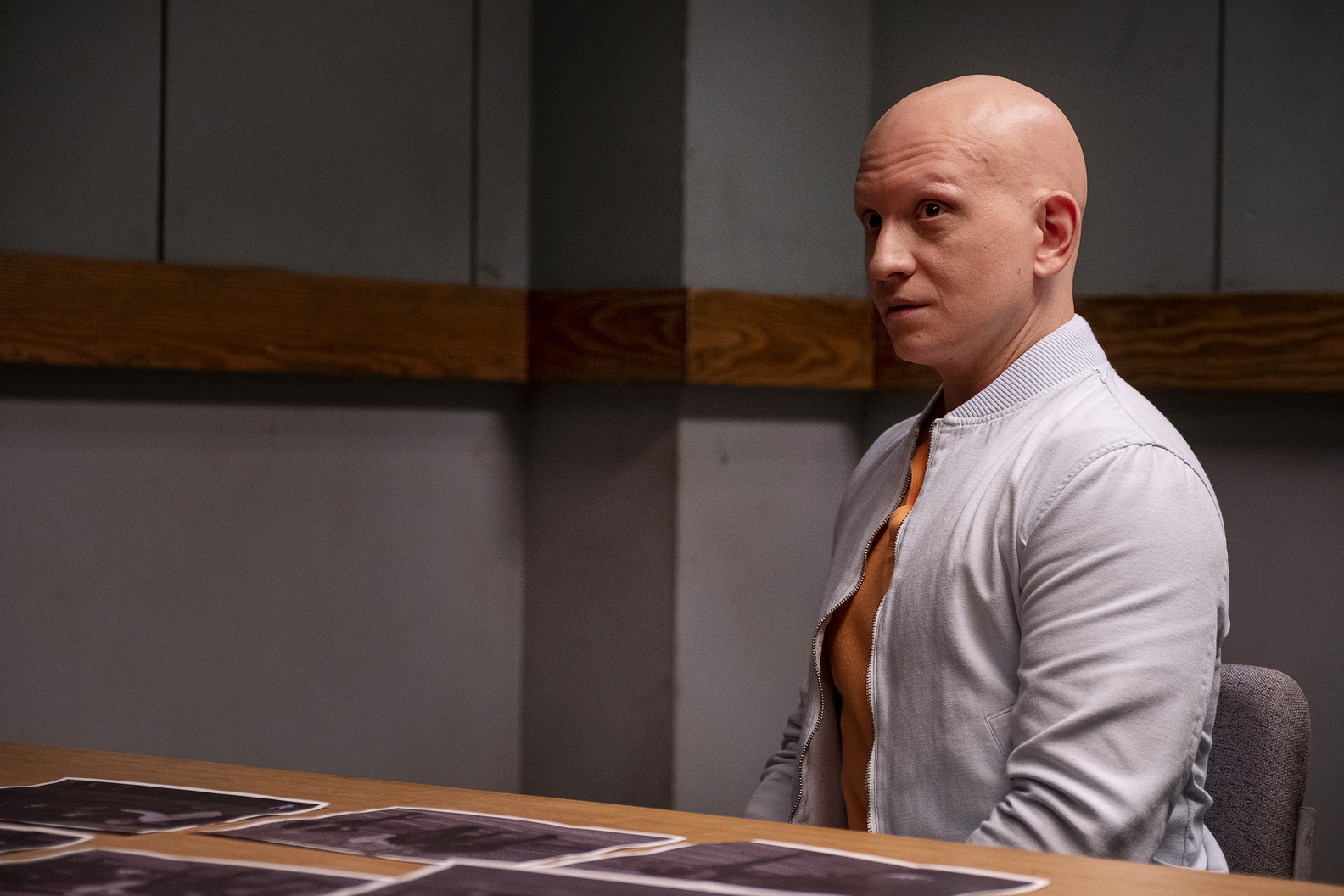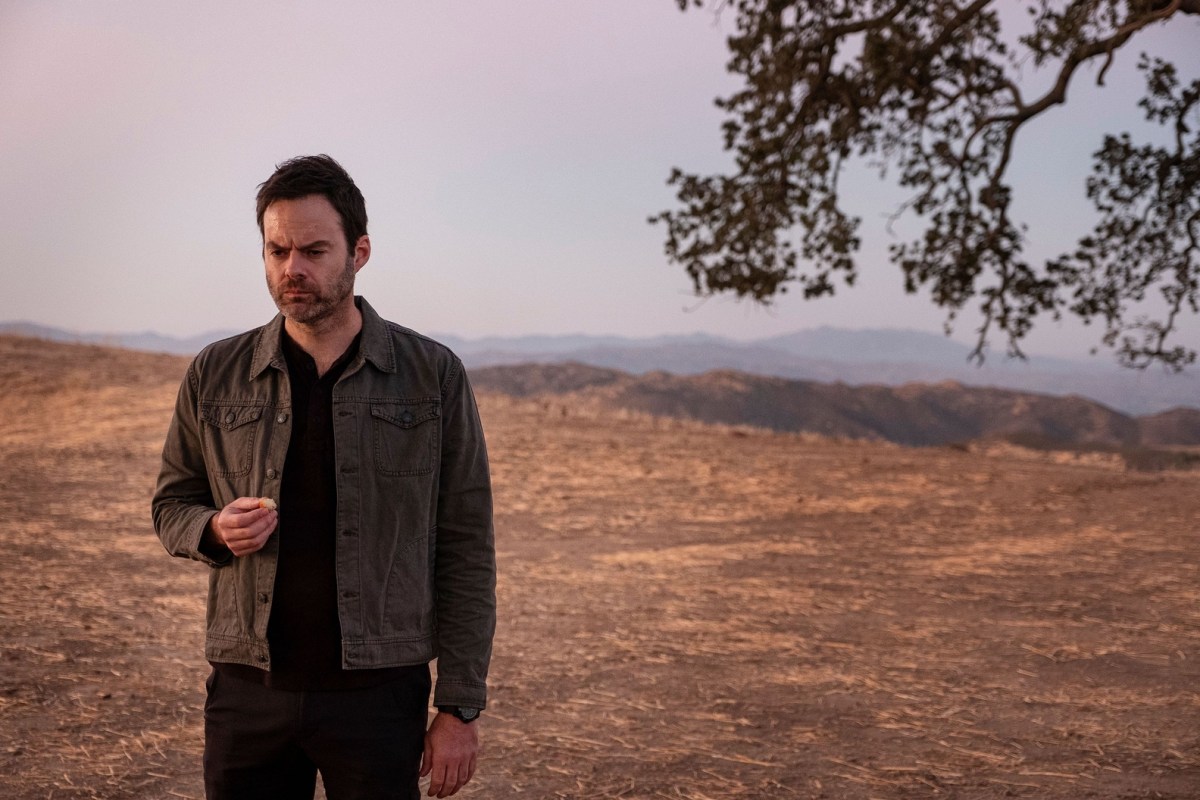HBO’s Barry returns for its third season this Sunday, April 24th, with a premiere episode that serves as a dark mirror of the first episode of season two. In that opener, “forgiving jeff,” Barry Berkman (Bill Hader) had attempted to escape his life as a hitman-for-hire by carving a burrow for himself in the rocky sands of L.A. acting culture. He helped his acting teacher Gene Cousineau (Henry Winkler), pick up the pieces after the murder of his girlfriend, LAPD Detective Janice Woods, allowing himself to forget that he had himself killed her and left her in a car trunk for being so good at her job she had figured he was responsible for the murder of a fellow acting student. In the world of Barry, competence is a death sentence.
In the season two opener, his old boss, Monroe Fuches (Stephen Root), separated from his very best assassin, found himself deep in trouble after an inferior hitman botched a job and literally led the police to his front door. And cheerily incompetent Chechen gangster Noho Hank (Anthony Carrigan), still believing that Barry was his very best friend, stopped by Barry’s new job at Lululemon to ask him for a murder-related favor, and Barry, happy and secure in his new, non-kill-for-money lifestyle, called Hank a “fucking idiot” and told him to fuck off.
Season three opens with Barry, having once again found his ties with Fuches severed, scouring the dark web and Craigslist for clients. As much as Fuches needed Barry to carry out a job efficiently and with no mess, Barry now finds that he needed Fuches just as much to find him quality, high-paying work. It makes one wonder if it’s entirely a coincidence that Barry’s boss has a name similar to former HBO CEO Michael Fuchs.
But mostly, the season opens as a cautionary tale about getting what you wish for. Much like the story of The Monkey’s Paw, or Stephen King’s Pet Sematary, the things you thought you wanted may not turn out to be what they seemed. They may be way, way worse.

In this season, more of a focus is given to Sarah Goldberg’s Sally Reed. From the first time they met back in season one, Barry saw her not as a person but as a cipher onto which he could project his fantasies of a “normal” relationship. By season two, they were dating, and it was obvious that she was unwilling and unable to provide him the emotional support he craves. Now in season three, she’s three episodes into her running and starring in her own TV show for the BanShe streaming network. It’s a dream-come-true, but it’s clearly the kind of dream where no matter how fast you run, you’re stuck still standing still because nothing quite makes sense and the world around you is out of your control.
Tonally, Sally’s story arc is reminiscent of David Lynch’s dark mirror showbiz fable Mulholland Drive (more on that in future weeks). For all of season two, she fought to get her agents to take her seriously so she could escape the endless parade of bit parts she was booking playing a young mom. And now, as the tar of her own show Joplin, based on the half-true story of her escape from an abusive marriage, she finds herself playing herself – but as a young mother.
Her state of mind is visually symbolized with a beautiful wide shot of Sally, insignificant and tiny, walking into a gigantic soundstage where her show is being shot, her very environment feeling as if it will swallow her whole. Hader-as-director has a lot of strengths; his work with his actors brings out some beautiful and unexpected performances, and he has no ego about making Hader-the-star look uncool or dumb. However, he has a very basic visual vocabulary, exemplified by season two’s finale, which sees Barry literally getting swallowed by the darkness he tried to escape.

In some ways, this serves him well. It allows him to stage a great sight gag, like Sally casually approving a stuntman’s rendition of her traumatic abusive relationship, without getting in his own way. And there’s a nice beat halfway through the scene where Sally finds herself taking a pause between sets and swallowed by her own darkness, only to be bathed in a red light that reminds her that for her, there is only the work.
Barry, meanwhile, finds himself in that dream relationship with Sally. But he can’t sleep—a fact she notes in passing, casually and disinterestedly asking if he had come to bed the night before—and he’s starting to lose his grip on reality. Which brings us to the second theme the episode explores, and one that is relatable to millions who suddenly found themselves not working for two years of The Great COVID Lockdown: “Without my career, what else is there left of me?” He won’t be alone grappling with that question as season three progresses.
For Noho Hank, the season premiere sees breakout star Anthony Carrigan adding dimension and depth to what was originally envisioned as a one-joke character. Early in the episode, he finally learns what the audience has known; Barry is not his friend. Barry has framed him for the murder of Detective Janice Woods, and we get to enjoy the journey the reaction to this betrayal takes across his face.

But now, Barry is lost. A soldier without a commanding officer, and having cut himself off from his dual-star father figures Cousineau and Fuches, he comes at last to Hank for a job, for friendship, for a sense of purpose. Hank gets his own chance to tell Barry to fuck off, in the process laying out the third theme that this season will take its time to explore: “Forgiveness must be earned.” The theme will be dramatically underscored with another character later in the half-hour.
Barry shares something in common with the two other great dark dramatic comedies of this Golden Age of Cable Television. Like The Sopranos and Breaking Bad, it takes a simple premise that could have been milked for obvious laughs and subverted expectations at every turn. For The Sopranos, the premise is simple; a mafia don goes into therapy to get in touch with his own feelings. To see how it could have played out if series creator David Chase had valued broad comedy over subtle character exploration and intricate plotting, you can check out the Robert DeNiro/Billy Crystal vehicle, Analyze This!
Similarly, there are obvious jokes to be mined in Hader and Alec Berg’s story of a hitman who moves to Los Angeles to take acting classes and build a “normal” life for himself. From delusional no-talent fellow acting students to Barry’s sad-sack never-was acting teacher, there have been plenty of opportunities here for cheap shots at these characters’ expense. But from the beginning, Barry refrained from taking an easy way out, and for Barry season three, it’s the only way out for any of these characters will be working towards.
Barry season three premieres on HBO Sunday April 24 at 10pm ET.

